Did Benito Mussolini order the Pope to be poisoned?
Main text translated from Guelfo negro channel
Did Benito Mussolini order the Pope to be poisoned?
Pope Pius XI was writing the encyclical Humani generis unitas, in which he would condemn the Fascist racial laws of 1938 for violating the Lateran Concordat. In it, Pius XI wrote:
“Millions of people are deprived of the most basic rights and privileges of citizens in their own country of birth. Denied legal protection against violence and theft, exposed to all forms of insult and public degradation, innocent people are treated as criminals, even though they have scrupulously obeyed the laws of their native land. Even those who, in time of war, bravely fought for their country are treated as traitors, and the children of those who gave their lives in the name of the homeland are considered outlaws for the mere fact of their ancestry. In the case of the Jews, this blatant denial of human rights casts many thousands of defenseless people across the face of the Earth, without any means.”
In the encyclical, the Pope compared Benito Mussolini and Adolf Hitler to Nero. Pius XI promised to do what he could, in the little time he had left, against the Fascist racial laws.
Bonifacio Pignatti, the Italian ambassador to the Holy See, upon learning of this, was terrified. He told Galeazzo Ciano, Mussolini’s son-in-law:
“The Pontiff has threatened to do something before he dies that will be remembered in Italy for a long time.”
Pignatti warned Ciano that the Pope might use the celebrations of the tenth anniversary of the Lateran Treaty, on February 11, 1939, to pronounce a condemnation of Fascism.
The Daily Mail newspaper of London published a report by its correspondent in Rome, stating that Pius XI was planning a secret consistory to condemn racism. There were rumors that the Pope was secretly preparing an encyclical for that purpose. These rumors were denied by Cardinal Eugenio Pacelli, Secretary of State of the Holy See, but he told Pignatti that Pius XI had warned:
“I will have more to say, and at my age, I am not afraid.”
The fact is that Cardinal Pacelli only learned of the existence of Humani generis unitas after the Pope's death. Pignatti, in transmitting these remarks to Ciano, recalled with great nervousness the comment by Pius XI that “before dying I might do something that Italy will remember for a long time.”
The Pope wanted to know whether Mussolini would be present in St. Peter’s Square to hear his speech. Cardinal Pacelli told him he was not sure but thought it unlikely. Pius XI replied:
“If he doesn’t want to celebrate the tenth anniversary, I will.”
French newspapers reported that the Pope was ill and furious with Mussolini. Because of this, he wished to leave Italy and move to France, evaluating the relative merits of Avignon and Fontainebleau. The Vatican newspaper L’Osservatore Romano published an article titled Fairy Tales, in which it claimed that Pius XI was in excellent health.
Mussolini was still furious with the Pope over his address to the Sacred College on December 24, 1938. In it, Pius XI denounced the persecution suffered by Italian Catholic Action:
“Truly bitter sorrow, when it comes to real and multiple vexations — let us not say exactly general, but certainly very numerous and in many places — against Catholic Action, this known apple of our eye. It had to be recognized and confessed, even by the tampering of various offices and their archives, that Catholic Action does not engage in politics nor offers unwanted competition, but simply intends to make Christian living its Christianity — and therefore, it constitutes an element of first order for the public good, especially in a Catholic country like Italy, as the facts demonstrate. Observing the zeal in the lower ranks, it seems very clear that, although Catholic Action is distinctly contemplated in Our Pact of Conciliation, great — or rather, hidden — gestures of permission and encouragement must be coming from above for these troubles not to cease in various places, from one end of the Peninsula to the other. And not only in small or unimportant places. Yesterday, Venice, Turin, and Bergamo were mentioned; today, it is Milan — and precisely in the person of its cardinal-archbishop, guilty of a speech and a teaching that fall exactly within his pastoral duties, and which we can only approve. But if we are the ones who always remind everyone that what is not truly and fully human is not Christian, and what is anti-Christian is inhuman, then what concerns the common dignity of humanity, freedom, the integrity of the individual — to whom, subject to due coordination and cooperation, society is destined — concerns also the order established by God, Creator and Savior. To this God, every man must say: ‘You are my God. He loved me and gave Himself for me.’ It was not only the bitter sorrow in the heart of the old father in the face of the mistreatment of his beloved Catholic Action. They were also real and serious concerns of the Head of Catholicism and Guardian of morality and truth, inevitably provoked by the offense, the wound inflicted upon the Concordat — and precisely with regard to sacred matrimony, which, for every Catholic, is of utmost importance.”
The French, American, and British press cited the Pope’s Christmas address to trumpet his dissatisfaction with the regime.
For example, the December 25 edition of the New York Times featured on its front page the headline: “Pius XI Deplores Fascist Hostility and Reveals Clues.”
Pignatti conveyed Mussolini’s displeasure to Cardinal Pacelli, who replied that no one could contain the Pope’s outbursts.
Mussolini had a message sent to Cardinal Pacelli saying he was willing to discuss the best way to organize the celebrations. He proposed a series of events in which he would take center stage, as he regularly did in Fascist ceremonies. He and the Pope would give separate speeches, exchange congratulatory messages, and celebrate Masses. Mussolini wanted to celebrate his Mass in the vast Roman sports field built in his honor. He would not set foot in St. Peter’s Square. He also wished to host a reception for the bishops of Italy while they were in Rome.
Cardinal Pacelli conveyed Mussolini’s proposal to Pius XI the next day, but the Pope suddenly changed the subject, beginning to berate him for not responding to his letter asking that interracial marriages not be prohibited.
Returning to Mussolini’s suggestions for the celebration, Pius XI said he could accept the exchange of messages but would not allow the bishops to attend the reception at the Palazzo Venezia. It would be he, the Pope, who would invite them to Rome, not Mussolini. And if Mussolini wanted to celebrate a Mass somewhere else, he would not be stopped.
However, the more he reflected on the suggestions, the more irritated the Pope became. Two days later, Pius XI told Cardinal Pacelli that he had changed his mind and would not exchange congratulatory messages with Mussolini. After all, as he argued, the treaty had been signed in the name of the King of Italy. Therefore, any exchange should take place with the King, not Mussolini.
Rumors about the secret encyclical against racism had somehow leaked. Mussolini and his advisers were worried.
The Pope then began to prepare his speeches, having decided to extend the celebration over two days: February 11 and 12. On the 11th, he would address the bishops in the presence of government dignitaries and the diplomatic corps. On the 12th, he would speak only to the bishops and high-ranking prelates.
In these speeches, Pius XI intended to denounce the violation of the Concordat and the persecution of Christians in Germany. Ciano was nervous about what the Pope might say on the occasion. He wrote in his diary: “The mood for the tenth-anniversary celebrations is growing grim.”
Mussolini informed Cardinal Pacelli that no government official would participate in the celebration without guarantees that the Pope would not use the occasion to criticize the regime.
Pius XI was also increasing the pressure. He told Cardinal Pacelli to warn Mussolini that Italians would be shocked if the country’s leaders boycotted the celebration. He warned that if the government were not represented at the highest level, he would feel obliged to comment on the absence during his speech.
Pacelli relayed the new warning from Pius XI to Pignatti, adding that the Pope was outraged by the fact that Mussolini had still not responded to his letter against the racial laws. Pignatti warned: if the Pope used the celebration to criticize the regime, “a situation similar to what the Church faces in Germany could be created in Italy.”
On February 7, the Pope dictated a message to L’Osservatore Romano, which began by stating: “The Holy Father is well.”
Mussolini, fearing a possible excommunication, sent Dr. Francesco Petáti — father of his mistress, Clara Petáti, and personal physician to Pius XI — to poison the Pope.
About 24 hours before delivering his speech, the Pope received an injection administered by Petáti. After his death, at the headquarters of the National Fascist Party, one could hear: “Hooray! Mussolini’s enemy is dead!” Mussolini welcomed the death of Pius XI with relief, commenting: “Finally, this stiff-necked man is dead.”
Ciano wrote in his diary on February 10: “The Pope is dead. The news leaves the Duce utterly indifferent.” In his 1972 memoirs, Cardinal Eugène Tisserant wrote about Pius XI: “They got rid of him, they murdered him.”
Tisserant accused the Pope’s personal doctor of poisoning him.
In Clara Petáti’s diary, the entry for February 5, 1939, is incomplete. It ends with the sentence: “He reads the notes and is worried about something that marks him... they know.” After that, the diary jumps to February 12, with no mention of the critical events.
Only one phrase from Mussolini remains, announcing to his mistress that he would attend the Pope’s funeral with his wife, Rachele Guidi.
Now, considering that Clara Petáti usually recorded the most important facts of her days, it is very strange that she wrote nothing about the following days — especially the day of the Pope’s death.
It seems evident that the pages referring to those days were purposefully removed, as they certainly contained clues that the death of Pius XI had been ordered by Mussolini.
Although Pope Pius XII did not publish the encyclical Humani generis unitas, he did publish the encyclical Summi Pontificatus, in which he condemned racism:
“Among the many errors derived from the poisoned source of religious and moral agnosticism, we wish to call your attention, venerable Brothers, to two in particular, which are, so to speak, those that make peaceful coexistence among peoples almost impossible, or at least precarious and uncertain. The first of these pernicious errors, now widely spread, is the neglect of that law of charity and human solidarity, suggested and imposed both by the identity of origin and the equality of rational nature in all human beings, without distinction of peoples, and by the sacrifice of Redemption offered by Jesus Christ on the Cross to the heavenly Father for sinful humanity.
Indeed, right on the first page, Scripture tells us with majestic simplicity that God, to crown His work of creation, made man in His own image and likeness (Genesis 1:26–27); and the same Scripture tells us that He enriched man with supernatural gifts and privileges, destining him for eternal and ineffable happiness. It also shows us how from the first couple other men originated, and then, with unsurpassed vividness of language, how they were divided into various groups and dispersed across different parts of the world. Even when they turned away from their Creator, God continued to consider them as children who, according to His merciful design, would one day once again enjoy His friendship (Genesis 12:3).
The Apostle of the Gentiles then becomes the herald of this truth, which binds all men into one great family, when he proclaims to the Greek people that God “made from one stock the whole human race to dwell on the entire face of the earth, having determined allotted periods and the boundaries of their habitation, that they should seek God” (Acts 17:26). A marvelous vision that makes us contemplate the human race in the unity of a common origin in God: one single “God and Father of all, who is above all, through all, and in all” (Ephesians 4:6); in the equality of nature, equally constituted in all of body and spiritual, immortal soul; in the unity of immediate end and of mission in the world; in the unity of dwelling place — the earth — whose goods, by natural right, all men may use to sustain and develop life; in the unity of supernatural end — God Himself — to which all must strive; in the unity of the means to attain that end.
And the same Apostle shows us humanity in the unity of relationship with the Son of God, the image of the invisible God, in whom all things were created; in the unity of the redemption of all, accomplished by Christ, who, becoming the mediator between God and men through His holy and most bitter Passion, restored humanity to its original friendship with God: “For there is one God, and one mediator between God and men, the man Christ Jesus” (1 Timothy 2:5).
And to make such friendship between God and humanity more intimate, this same divine and universal Mediator of salvation and peace, in the sacred silence of the Upper Room, before consummating the supreme sacrifice, let fall from His divine lips the word that has been repeated through the centuries, arousing at the same time acts of heroic charity in a world devoid of love and torn by hatred: “This is my commandment, that you love one another as I have loved you” (John 15:12).
These are supernatural truths, which establish deep foundations and most solid bonds of union, strengthened by the love of God and the divine Redeemer, from whom all receive salvation “for the building up of the body of Christ, until we all attain to the unity of faith and of the knowledge of the Son of God, to mature manhood, to the measure of the stature of the fullness of Christ” (Ephesians 4:12–13).
In light of this de jure and de facto unity of all humanity, individuals do not appear to us as isolated from one another, like grains of sand, but rather united by relationships—varying over time—yet organic, harmonious, and mutual, by natural and supernatural destiny and impulse. And peoples, evolving and differentiating according to various conditions of life and culture, are not destined to break the unity of the human race, but rather to enrich and adorn it through the communication of their particular gifts and through that mutual exchange of goods, which is only possible and truly effective when all the children of the same Father and all those redeemed by the same divine blood are united by mutual love and a deeply felt charity.
The Church of Christ, most faithful custodian of divine and educative wisdom, cannot and does not intend to criticize or belittle the special characteristics which each people preserves with jealous devotion and understandable pride, and regards as a precious heritage.
Its aim is supernatural unity in universal love—deeply felt and practiced—not uniformity, which is merely external, superficial, and, for that very reason, weakening. The Church joyfully greets and maternally supports all endeavors and efforts that aim at the prudent and orderly development of particular forces and tendencies, which have their roots in the innermost recesses of each race, provided they do not contradict the duties of humanity derived from the unity of origin and common destiny. In her missionary activity, the Church has repeatedly affirmed that such a norm is the guiding star of her universal apostolate. Countless investigations and inquiries carried out by missionary pioneers with sacrifice, love, and dedication have sought to facilitate an inner understanding and respect for diverse civilizations and to make spiritual values fruitful through the living and vital preaching of the Gospel of Christ. Everything in such customs and traditions that is not indissolubly bound to religious error will always be benevolently examined and, where possible, promoted and safeguarded.
And our immediate predecessor, of holy and venerable memory, in applying such norms to a particularly delicate matter, made generous decisions that erected a monument to the breadth of his vision and the fervor of his apostolic spirit. It goes without saying, Venerable Brethren, that we intend to continue along this path without the slightest hesitation. All those who enter the Church, regardless of their origin or language, must know that they possess equal rights as children in the house of the Lord, where the law and peace of Christ reign. In accordance with these norms of equality, the Church dedicates her efforts to the formation of a numerous native clergy and to the gradual increase of an indigenous episcopate. And to give a proof of these intentions, we have chosen the imminent feast of Christ the King to elevate, upon the tomb of the Prince of the Apostles, twelve representatives of various peoples and races to the dignity of the episcopate.
Amid the rending divisions that afflict the human family, may this solemn act proclaim to all our children scattered throughout the world that the spirit, teaching, and work of the Church can never be other than what the Apostle to the Gentiles proclaimed: “You have put on the new man, who is being renewed unto knowledge according to the image of his Creator. There is neither Greek nor Jew, circumcised nor uncircumcised, barbarian, Scythian, slave, free; but Christ is all and in all” (Colossians 3:10–13).
REFERENCES: David I. Kertzer, O papa e Mussolini: A conexão secreta entre Pio XI e a ascensão do fascismo na Europa, Intrínseca, 2017, p. 368, 369, 370, 371, 372, 373 e 525. Cesare De Agostini, Segregati da Dio: tutti i conclavi del '900, p. 164. Carlo Falconi, I Papi del ventesimo secolo, p. 251.
0


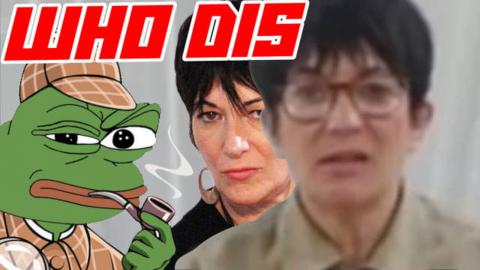
 TheSaltyCracker
TheSaltyCracker
 RT
RT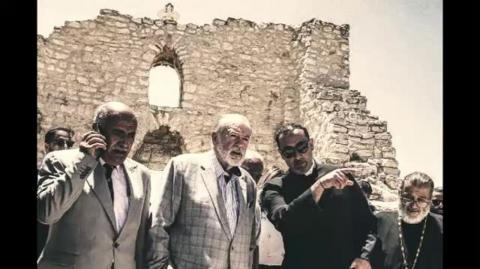
 Sant77
Sant77
 Timcast IRL
Timcast IRL
 TheQuartering
TheQuartering
 Playing With Fire
Playing With Fire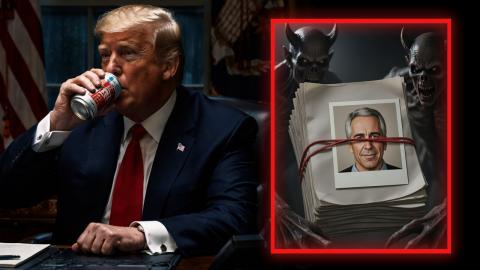
 The Alex Jones Show
The Alex Jones Show
 AaronClarey
AaronClarey
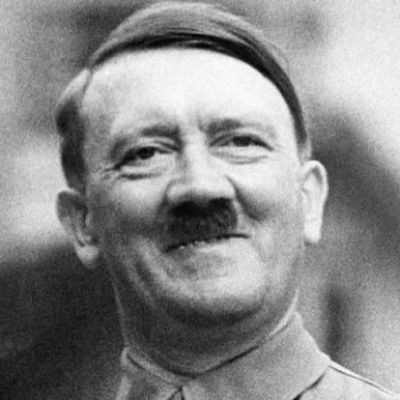 Life_N_Times_of_Shane_T_Hanson
Life_N_Times_of_Shane_T_Hanson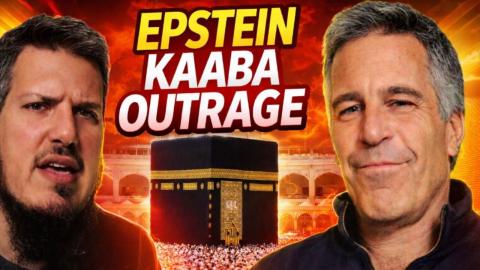
 The Muslim Skeptic
The Muslim Skeptic

 Taylor The Fiend
Taylor The Fiend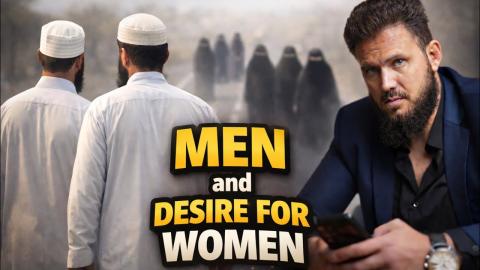
 Gabriel Al Romaani
Gabriel Al Romaani

 SoloMan Zone
SoloMan Zone

 StevenCrowder
StevenCrowder

 Donovan Sharpe
Donovan Sharpe


Log in to comment